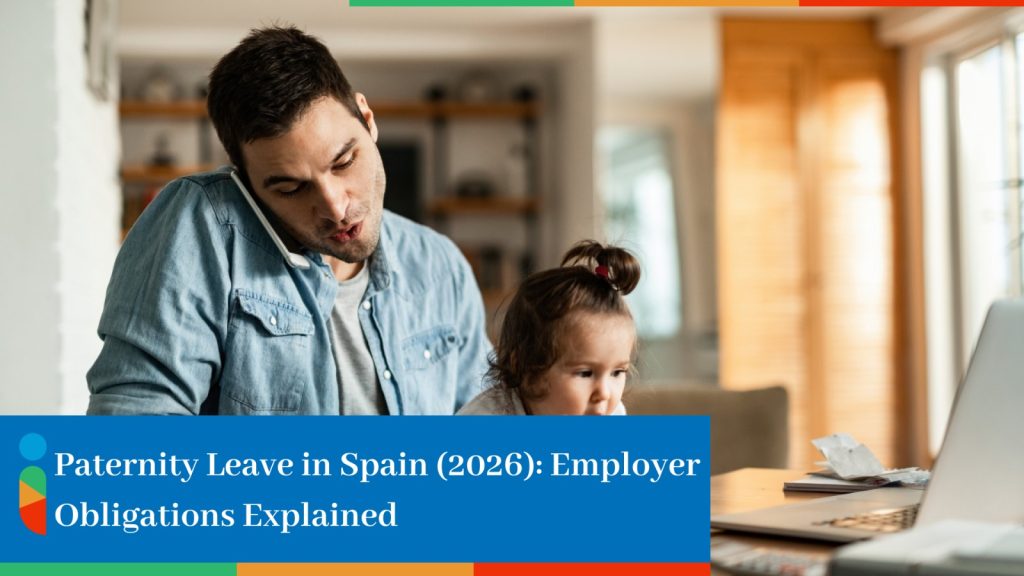Looking to expand into Germany’s job market? The rulebook is strict. Very strict. For international employers, German labour law can open doors or trigger costly legal mistakes.
As of July 2025, around 45.8 million people were employed in Germany, according to the Federal Statistical Office (Destatis). That is nearly the same as the population of Spain. Those millions of jobs don’t run on effort alone. They run on rules. Rules that shield employees. Rules that guide employers.
Why does this matter for global companies? Because German employment law is not just paperwork. Miss one clause and the consequences follow. It can be fines, lawsuits, or reputational harm. Get it right, and you have access to one of Europe’s most stable and trusted workforces.
There’s more to the story….
Unlike the United States, where at-will employment allows instant dismissal, Germany takes a different path. Here, every job needs a written contract. Termination must have a valid reason. Jobs in Germany are not disposable agreements. They are social contracts.
Germany remains Europe’s economic powerhouse. But for foreign employers, the German employment law system may feel complicated. That’s why the team at IberiaEOR created this guide. This write-up explains complex labour law in simple terms to help international companies work in Germany compliantly.
Tip: Bookmark this article as we keep it updated, so you always have the most recent insights.
German Employment Law Explained: Rights, Duties, and Legal Framework
We need to understand that Germany has a long history of safeguarding workers’ rights. Over time, the country has built a system that tries to balance two things:
- Helping businesses stay successful, and
- making sure employees are treated fairly.
Unlike some countries that rely on a single employment code, Germany operates on a layered framework:
- Federal statutes
- Landmark rulings of the Federal Labour Court (Bundesarbeitsgericht)
- Collective bargaining agreements (CBAs)
- EU directives transposed into national law
Together, they form a framework that balances employee protection with business stability.
Think of it as a puzzle-every piece matters. You’ll need to see how those pieces fit. To succeed in Germany, you first need to understand the core legal framework that shapes employment law.
Core Legal Framework and Sources (And Why They Matter)
The roots of employment & labour law in Germany run deep. It began with the Civil Code of 1900, which still governs contracts. As decades passed, EU directives on data protection and working time have built new layers that changed how the system works today.
Here’s a snapshot of the milestones employers must respect:
| Law / Institution | Year Introduced | Purpose and Impact |
| Civil Code (BGB) | 1900 | Foundation of contracts in Germany. Governs how agreements are formed, enforced, and challenged. Every employment contract is based on it. |
| Weimar Constitution | 1919 | First recognition of workers’ rights. It introduced equality principles and laid the groundwork for employee protections. |
| Works Council Act (Betriebsrätegesetz) | 1920 | Gave employees the right to form works councils. Ensures worker representation in company decisions. |
| Protection Against Dismissal Act (Kündigungsschutzgesetz) | 1951 | Shields employees from unfair dismissal. Employers must provide valid business, conduct, or personal reasons for termination. |
| Co-Determination Act (Mitbestimmungsgesetz) | 1976 | Strengthened employee influence in large companies. Workers can join supervisory boards and take part in high-level company decisions. |
| Hartz labour Market Reforms | 2003-2005 | Modernised the labour market. These reforms introduced flexibility (e.g., part-time, temp jobs) while still keeping strong social protections like unemployment benefits. |
| Nachweisgesetz Reform | 2022 | Made written employment terms mandatory. Employers must provide details on pay, hours, leave, and notice within one month. |
| Federal Labour Court (Bundesarbeitsgericht) | Ongoing | Highest authority for labour disputes. Its rulings set binding precedents for employers and employees. |
| Collective Bargaining Agreements | Ongoing | Sectoral rules on wages, dismissal, and working conditions |
| EU Directives (e.g. GDPR, Working Time, etc.) | 2018+ | EU-wide rules applied in Germany. GDPR regulates employee data; the Working Time Directive limits hours and enforces rest periods. |
Table 1.1: Key Laws and Institutions in German Employment & Labour Law
Once you understand the legal framework, it’s easier to see how Germany’s employment system compares with the U.S. ‘at-will’ model
At-Will Employment versus German Labour Law
In the United States, ‘at-will’ is the standard. It means an employee can quit instantly, and an employer can fire without explanation. However, Germany is very different.
As explained earlier, Germany views employment as a social contract. That principle shapes the law. And because of that, the rules are stricter and facilitate stronger protection for workers:
- Firing someone is not simple. Employers must provide a valid reason, such as downsizing, misconduct, or inability to perform.
- Contracts must be written. Verbal agreements do not count. The law requires a written contract that specifies pay, working hours, leave, and notice periods.
- The notice period is longer in Germany. In America, notice may be a week or none at all. In Germany, it begins at four weeks and increases with length of service.
- Workers are represented. They can elect works councils. In larger companies, they may also sit on supervisory boards and influence major decisions.
- Balance is the goal. Employees receive protection. Employers gain certainty and stability.
The lesson is simple: companies cannot treat all markets the same. What works in one country can be a legal risk under German labour law. With that in mind, let us move to the concrete obligations every employer must meet.
Key Employer Obligations in Germany: What Every Employer Must Know
In Germany, obligations shape the employer-employee relationship. They are more than forms or signatures—each carries legal weight and is closely monitored. Here’s what every international employer must know.

-
Mandatory Written Contracts
In Germany, you cannot just shake hands or agree verbally. Every worker must get a written employment contract in Germany. Since August 2022, the Nachweisgesetz has made this compulsory. Employers must issue the contract or, at the very least, a written statement within one month of hiring.
The contract can include pay, hours, probation, leave, notice terms, and other specific employment details. It sets expectations, reduces disputes, and builds trust. Miss this step, and fines follow.
-
Minimum Wage and Salary Rules
As of 2025, the minimum wage in Germany is €12.82 per hour. That’s the baseline under German labour law. However, many industries have collective bargaining agreements (CBAs) that set wages above the statutory minimum. For example, construction or logistics workers may earn more due to these agreements negotiated by unions and employer groups.
Employers must always check what applies. Underpay, and you face back payments, penalties, and a damaged reputation.
-
Social Security and Insurance Contributions
In Germany, salary isn’t the full story. The system is built on shared responsibility. Employers and employees split health, pension, and unemployment insurance. Accident insurance? That’s all on the employer. And payments must be on time.
Employers and employees split contributions:
- Health insurance: 14.6% general rate plus ~1.7% supplementary contribution (both split), totaling ~16.3%.
- Pension insurance: 18.6% (split)
- Unemployment insurance: 2.6% (split)
- Accident insurance: fully employer-funded
Late or missing payments can result in audits, fines, or even criminal charges.
-
Data Protection: Protect Employee Privacy
Employee data is gold. And under GDPR, mishandling it can be deadly for business. Employers must:
- Have a lawful basis for processing (contract, legal duty, or consent)
- Use data only for work-related purposes
- Secure data against breaches
- Delete data when no longer needed
Non-compliance can cost up to €20 million or 4% of global turnover. Data protection is not optional. It’s core to German employment law for foreigners and local firms alike.
-
Collective Bargaining Agreements
In Germany, unions matter. Collective agreements (Tarifverträge) regulate:
- Wages
- Working hours
- Overtime pay
- Dismissal conditions
They may apply even if a company is not unionized, especially if declared generally binding. Ignore them, and you invite lawsuits and financial penalties. That’s how employment & labour law in Germany ensures fair play.
-
Works Councils and Co-Determination
Think of a company where employees always have a seat at the table. In Germany, that’s real. Under the Works Constitution Act (BetrVG), employees can elect a works council if a company has at least five staff. Works councils must be consulted on:
- Hiring and dismissals
- Restructuring plans
- Workplace policies
In companies with over 500 employees, the One-Third Participation Act gives workers seats on supervisory boards. In companies with over 2,000 employees, the Co-Determination Act grants up to half the board seats to workers.
-
Anti-Discrimination Rules (AGG)
Under German employment law, equality is non-negotiable. The General Equal Treatment Act (AGG) prohibits workplace discrimination based on:
- Gender
- Ethnic origin
- Religion or belief
- Age
- Sexual orientation
- Disability
Employers must ensure fair hiring, equal pay, and impartial treatment. Break this rule, and you face lawsuits, compensation claims, and reputational damage.
-
Occupational Health and Safety
Employers must ensure workplaces are safe under the Occupational Safety and Health Act (ArbSchG). This means:
- Assess workplace hazards regularly
- Implementing safety measures and emergency protocols
- Providing necessary protective equipment and health training
- Record and investigate accidents
Neglect these duties, and the risk is high: fines, liability, even criminal charges.
Why It Matters
Together, these obligations form the backbone of German employment law. They protect employees and give employers predictability. But compliance with contracts, wages, and safety is only the first step.
The challenge grows when employees come from abroad. Germany faces a skills gap, and foreign workers help fill it. At this stage, the rules shift again, which is broken down in the next section.
Hiring & Managing Foreign Employees
Germany relies on global talent. But foreign hiring is not simple. Permits, residence rights, and onboarding all add complexity. This is where EOR services Germany become valuable. EOR services cut through the red tape, taking care of compliance and paperwork.
Still, even with support, companies must understand the legal framework. That means knowing how German labour law for foreign workers operates.
German Employment Law for Foreigners
- EU/EEA Citizens: free access to the labour market.
- Non-EU Employees: require residence/work permits.
- EU Blue Card: fast-track for highly skilled roles (€43,759.80 for shortage occupations, €48,300 otherwise).
Sponsorship often falls on the employer, which means proving that the role cannot easily be filled locally. This adds a layer of responsibility that companies must plan for.
Employee Classification
Bringing in a foreign worker doesn’t finish the job. The real test is in classification.
- Employee or Contractor? Get it wrong, and the fines are heavy.
- Back Payments: Authorities can demand retroactive social contributions.
- High-Risk Sectors: IT, logistics, and consulting see the most mistakes.
Correct classification protects both sides. Under employment & labour law in Germany, the authorities watch this closely.
Probation Periods
Once an employee starts, the probation period defines flexibility.
- Length: Usually up to six months.
- Notice: During this time, jobs can end with just two weeks’ notice.
- Afterward: Notice periods increase with tenure, giving employees stronger protection.
And while probation shapes the start of employment, working hours and leave define the rhythm of daily work.
Working Hours, Leave, and Overtime
Work-life balance is not a slogan in Germany; it is protected by law. Employers must respect limits on hours, track time, and provide proper leave.
Standard Working Hours
- By law: maximum 8 hours per day, 40 per week.
- Can stretch to 10 hours a day, if the six-month average is still 8.
- The rules on German working hours are designed to protect employees from burnout while giving employers predictability.
Overtime Regulations
- No single national rule. Defined in contracts and collective agreements.
- Many agreements provide higher pay or time off in lieu.
- Since 2022, employers must systematically record working hours, often using digital tools to comply with Federal Labour Court rulings
Leave and Holidays
- Minimum of 20 paid vacation days per year (based on a 5-day work week).
- In practice, most employees receive 25–30 days.
- Sick leave, public holidays, and parental leave come on top.
With hours and leave so clearly structured, the next big question is how jobs can legally end in Germany.
Termination and Employee Protection
Dismissals are a sensitive area in German labour law. Employers must act carefully. Wrong steps can make a termination invalid or trigger costly claims.
Notice Periods
Employees with less than two years of service receive at least four weeks’ notice. After that, notice periods grow with tenure, up to seven months for long-serving staff.
Protection Against Unfair Dismissal
The Protection Against Dismissal Act applies after six months in companies with more than ten staff. Employers must show social justification, consult the works council, and follow proper procedure.
Severance Pay
Although not automatic, severance is common. A rule of thumb is half a month’s pay per year of service, often negotiated in court or through collective agreements.
Extra Protection
Some employees have stronger shields under German employment law. Pregnant women, parents on parental leave, and severely disabled employees cannot be dismissed without prior approval from the authorities. And with new reforms, whistleblowers are protected too, so raising concerns cannot cost them their jobs.
Common Compliance Challenges for Global Employers
Even the best-prepared employers stumble in Germany. Payroll is the first hurdle. It is not just salary but health insurance, pensions, unemployment cover, and accident insurance. Each has its own rate and deadline. Miss one, and fines follow.
Contractors are another trap. Call someone a freelancer when they act like an employee and authorities treat it as false self-employment. The bill? Backdated contributions, penalties, and court.
Data protection is strict. Mishandle employee data and fines reach millions. From 2023, digital time tracking of all hours is also compulsory. Many firms miss it. Inspectors do not overlook it.
Collective bargaining? Another surprise. You think you’ve set pay. Then a sector-wide agreement applies—even if you never signed it. Suddenly, wages, leave, and overtime are locked by law.
Dismissals are strict. Notice periods stretch with tenure, up to seven months. The law demands valid reasons and works council input. Miss a step, and it is invalid.

Extra protection applies. Some employees are almost untouchable. Pregnant staff, parents on leave, and the disabled need authority approval before dismissal.
Severance is expected. Courts often award half a month’s pay per year of service. Many firms fail to plan for it.
Works councils matter. With five or more staff, employees can elect one. Councils must be heard on hiring, firing, and restructuring. In big firms, they sit on boards. Ignoring them makes decisions legally fragile.
Language and paperwork create barriers. Contracts and filings are in German. Misunderstand a clause and compliance slips.
The law keeps moving. Whistleblower protection is now mandatory. Pay transparency rules are next. In Germany, compliance is never a one-time task. It is ongoing.
Best Practices to Stay Compliant in Germany
Expanding into Germany means adapting to one of the most regulated labour systems in the world. But with the right strategies, compliance becomes manageable.
Partner with a Local HR/Employer of Record (EOR)
An EOR takes care of payroll, contracts, tax obligations, and contributions. This allows global employers to focus on growth while staying compliant.
Regular Legal Audits
German labour law changes frequently, and compliance gaps often go unnoticed until they trigger disputes. Internal legal audits help employers review contracts, payslips, data policies, and dismissal procedures. Spotting risks early prevents costly litigation and keeps your processes aligned with the law.
Training for HR Teams
Policies are only as good as the people who apply them. Training HR teams ensures that GDPR, dismissal rules, and diversity laws are applied consistently.
These practices not only reduce risks, they also build trust with employees, which is the ultimate key to long-term success in Germany.
Bringing It All Together
This guide covered the essentials. From the roots of the law to everyday rules on contracts, pay, working hours, leave, and even the process of termination. We also explored German employment law for foreigners, showing how permits, classification, and probation work in practice.
For global companies, employment and labour law in Germany can feel complex. Yet these same rules are what make Germany one of the safest and most reliable places to build strong teams.
At IberiaEOR, more than 120 global firms already trust us to turn compliance into growth. In a country where every clause counts, we ensure nothing is overlooked.
Expand into Germany with confidence. Schedule a free consultation with IberiaEOR today.
FAQs
Is Remote Work Legally Protected in Germany?
Not yet fully, but discussions are ongoing. Employers must still comply with health, safety, and time-tracking rules.
What Languages Can Employment Contracts Be In?
Contracts are usually in German. An English version can be used, but a German version is advisable and typically prevails in disputes.
What Happens if An Employer Ignores the Works Council?
Decisions can be blocked or ruled invalid, and disputes may escalate to labour courts.
Are Internships Regulated Under German Labour Law?
Yes. Paid internships follow minimum wage rules unless they are mandatory as part of studies.
When Does the Protection Against Dismissal Act Apply?
Applies in companies with >10 staff, to employees with over 6 months of service.





